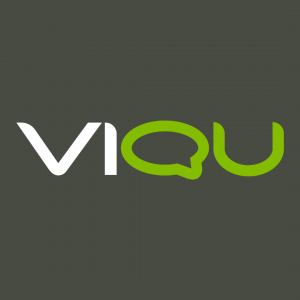How Talent Acquisition Teams Can Use DEI Initiatives To Create Thriving Workplaces

Awareness around Diversity, Equity & Inclusion (DEI) and creating welcoming, fair and diverse workplace environments has steadily been becoming more prevalent in the last 10-15 years. It’s far more than just a buzzword, DEI initiatives are an essential component of any sustainable and thriving organisation.
Yet, I have come across organisations who either misunderstand or lack a true grasp of what DEI work actually entails in the context of hiring and recruitment.
DEI initiatives are not so much focused on who an organisation should be hiring necessarily, but on setting up and structuring a recruitment system that removes bias to ensure that everyone has a fair opportunity to thrive.
Why should DEI be important to organisations?
A really well thought out and integrated DEI strategy will necessitate a talent acquisition team looking in lots of places for great talent. So the first obvious effect of a good DEI strategy is that the organisation will get a wider pool of talent, and with many sectors struggling to fill their skills gap, having access to a breadth of professionals is extremely important.
However, DEI goes far beyond being just a business strategy – it’s fundamentally the right thing to do. And yet, the business case is compelling too – with the creation and implementation of DEI initiatives most certainly having a positive effect on business performance. Diverse teams encompassing people from a variety of backgrounds with varying perspectives can lead to richer ideas, enhanced innovation and a greater ability to tackle complex problems. Inevitably, this will make a good contribution to an organisation’s culture.
People are attracted to and want to work for businesses that are fair and equitable. When people feel happy within an organisation, they are more engaged, more productive and more likely to stay, which tends to lead to increases in business performance, but it also inevitably leads to a better employer brand for that business.
So, ultimately, ensuring DEI best practices throughout hiring and recruiting processes is the right thing for organisations to do, but it also has several effects which should drive any organisation to empower their talent team to push DEI forward within their hiring systems.
What DEI initiatives contribute to a really thorough strategy for talent acquisition?
Data
It all starts with data. Before any meaningful progress can be made, a talent acquisition team must first understand their applicant funnel. Data provides crucial insights that can help answer key questions: Are we attracting candidates from a broad range of diverse backgrounds? Are there stages in the recruitment process where certain groups may be unintentionally disadvantaged?
By analysing this data, organisations can build a clearer picture of the candidate journey—identifying patterns, potential barriers, and opportunities for improvement. This foundational understanding is essential for designing a more inclusive, equitable, and effective recruitment process.
I found in my previous role, and having trained as an Organisational Psychologist, that the use of psychometric tests in recruitment processes a great way to assess candidates’ cognitive abilities, personality traits and job-relevant skills. However, some tests may inadvertently disadvantage certain groups in the process, due to systemic factors in how some tests are built. Therefore, it’s really important to avoid a one-size-fits-all approach when using cognitive ability testing as it can lead to a limited talent pool.
These kinds of findings can push a talent team to enforce clear targets, which I do understand and agree with as it sets a clear intention for the organisation. However, if an organisation sets a goal of hiring a 50:50 gender ratio across all roles, and goes to market looking for a certain type of engineer, for example, which has a market consisting of only 20% women, the organisation is setting themselves up for failure and disappointment. Ambitious targets are important, but they should also be grounded in reality and data. This necessitates a different talent management strategy targeting skills development from within the organisation.
It can be a really difficult balance to strike, but if the talent team takes their findings from their data and combines it with researching proportionality to understand whether there is a proportionate disadvantage for certain groups in skillsets that they need to hire, then they will be able to go about setting a plan.
Data really is the best place for any talent team to look at first, before exploring which DEI initiatives might be suitable for their organisation, as long as they do it sensitively and with the highest level of data integrity.
Reporting & gaining buy-in
Reporting on the key findings and sharing them with the organisation’s leadership team is important. Getting buy-in from the board or senior leadership team and having transparent communication to explain what the data shows in terms of where the applicant funnel is at and what the plans are to address areas that need attention, truly is key to the overall process.
Every organisation needs leaders to demonstrate inclusive behaviours in order to build “psychological safety”. DEI best practices shouldn’t be owned by boards or leadership teams, but it also shouldn’t be seen as a “HR thing”. That said, the people or talent team will be best placed to facilitate and partner with the teams across the organisation to embed it into the business.
Working with the right partners
When working with external suppliers, it is key for a talent team to protect DEI initiatives and best practice throughout implementation and beyond. A thorough onboarding process outlining the hiring philosophy and process will set the partnership up for success and suppliers can really work as an extension to the internal talent acquisition team.
For instance, a good recruitment partner will be involved throughout almost the entire recruitment process. It is key that the recruitment agency has the right understanding of the organisation and their DEI motivations, in addition to having robust processes in place on their side too, in order to support the organisation effectively.
A good recruitment partner will look to embody the organisation’s talent team, representing its philosophy, values and ethos. This in turn ensures that the organisation’s DEI initiatives and approach are accurately portrayed to the candidate, which can then help to attract a wider pool of professionals.
What wider approaches do you consider to be DEI best practice in the talent acquisition process?
Testing for the right behaviours, skills and competencies
Establishing testing is important. In order to reduce unconscious bias in recruitment practices, a talent acquisition team needs to identify the best ways to find talent and predict future job success.
In my experience, psychometric testing, which looks to test an applicant’s general cognitive ability, when aligned with a competency-based interview or assessment centre, can result in an organisation hiring the top 1-3% within the applicant funnel.
Therefore, testing is a great approach for identifying good talent whilst also reducing unconscious bias, as it provides real data backed by behavioural science to pick the best candidates for the role, rather than relying solely on perspectives which are subjective to the interviewer.
Skilled interviewers
There is an art to conducting a good interview, which tends to be overlooked. A talent team should support their established DEI initiatives by ensuring there is an awareness amongst all hiring managers in the organisation of what a good and skilled interview entails.
Often, interviews just happen. But the lack of knowledge around the skill of interviewing can be highly problematic. If an individual is not trained to interview and does not understand how bias is involved, then the positive work done at the start of the applicant funnel could be in vain.
Structuring interviews
Every talent team must do all they can to ensure all applicants get the same opportunity for success. However, just like with certain information on a CV, when an interview goes in a particular direction because of what is mentioned, it can cause a hiring manager to be naturally drawn to the applicant because of a similarity or something the person said.
Therefore, structuring interviews so that each applicant receives the same questions and is assessed against a scoring criteria and matrix means that everyone gets the same opportunity. This, coupled with some of the approaches I’ve already mentioned, and incorporating diverse interview panels where possible, will ensure unconscious bias is reduced.
How should a talent acquisition team tackle unconscious bias to ensure a fair hiring process?
In addition to some of the actions and DEI initiatives I just mentioned, a really forward-thinking way talent teams can ensure a reduction in unconscious bias is by anonymising CVs.
Whilst I was working in one particular organisation, we had established testing in the standard recruitment process, but we decided to go further to reduce unconscious bias. This involved removing CVs out of the recruitment process completely. We would put together a summary of the candidates’ skills and experience for the hiring manager to review, rather than sharing their CV.
This way all applicants had an equal chance of success. There were no mentions of names, career gaps, schools attended, hobbies – anything that could bias the hiring manager towards or against the applicant before the interview stage.
We received extensive feedback that this change created opportunities for meaningful conversations about applicants’ experience and skillsets, without the kind of bias that might come from seeing a CV. In turn, candidates found it a refreshing experience, as they could have more purposeful conversations with the interview panel.
How should a talent team be communicating DEI initiatives and wider changes to their recruitment process effectively both internally and externally?
Corporate and employer brand are two separate things, although they are intertwined in some ways. From a brand perspective, I think it works best when an organisation has its own unique employee voice. Applicants don’t want to be met with what the corporate brand is, they might already be aware of that. Instead, they want to get real insights into what the workplace is actually like through an effective Employee Value Proposition (EVP).
Therefore, it’s essential for every talent team to ensure their DEI initiatives and overall approach aligns with and is accurately represented throughout the organisation’s EVP, meaning that both current employees and external applicants can gain an awareness of the organisation’s DEI initiatives and approach.

Written by Marianne West
Marianne West is a strategic HR leader specialising in talent acquisition. In her most recent role, Marianne worked for a software and IT services business with 2,500+ employees, where she led talent acquisition and reward strategy across the group.
A passionate individual who enjoys creating environments where people thrive, Marianne made a significant contribution to the DEI strategy of her previous employer and led the DEI team for a portion of her tenure.
Through mentoring, data-driven decision-making, and with a strong focus on DEI, Marianne aims to continuously cultivate a culture of performance, growth, and opportunity. With Marianne due to start a new role for a UK charity as Emerging Talent & Equity Lead, she hopes to drive similar change and progression.
LinkedInSimilar articles you might like...

The Current Landscape Of Permanent IT Recruitment: May 2025
The permanent IT recruitment market has shown signs of improvement in the first few months of 2025, with new and growing opportunities for IT professionals.

How Are Data Analytics Jobs Evolving In The Face Of Rising Automation And AI?
Data analytics jobs are changing as many data analysts begin to use AI and automation to speed up their workflows and to add efficiencies.
Latest jobs
Service Desk Lead
 London, United Kingdom
London, United Kingdom
 £250 - 300 per day
£250 - 300 per day
Service Desk Lead – 6-month contract – London My Customer is looking for a Service Desk Lead—a hands-on, technically proficient engineer who thrives in a collaborative environment and naturally leads by example. While this role...
SQL Database Administrator
 London, United Kingdom
London, United Kingdom
 £350 - 450 per day
£350 - 450 per day
SQL Database Administrator – 3-month Contract – Fully Remote We are seeking an experienced SQL Database Administrator (DBA) to support our customer as they transition from a legacy SQL Server 2016 environment to a managed...
Infrastructure & Security Engineer
 London, United Kingdom
London, United Kingdom
 £65k - 75k per year
£65k - 75k per year
Infrastructure & Security Engineer - £65,000 - £75,000London - Hybrid We're partnering with one of London's premier events venues to recruit a skilled Infrastructure & Security Engineer. This is an exciting opportunity to join a dynamic...
Network & Cyber Security Specialist
 London, United Kingdom
London, United Kingdom
 £70k - 78k per year
£70k - 78k per year
Network & Security SpecialistLondon – Hybrid (4 days weekly in office)Competitive Salary + Car allowanceVIQU have partnered with a prestigious Fortune 500 company that is looking to hire a Security Specialist, who also has a...
Control Systems Engineer
 Stafford, United Kingdom
Stafford, United Kingdom
 Market related
Market related
Control Systems Senior Software Engineer – 6 Month Contract – Staffordshire – Inside IR35Our client is recruiting for a Control Systems Senior Software Engineer on a contract basis to support within the renewable power generation...


